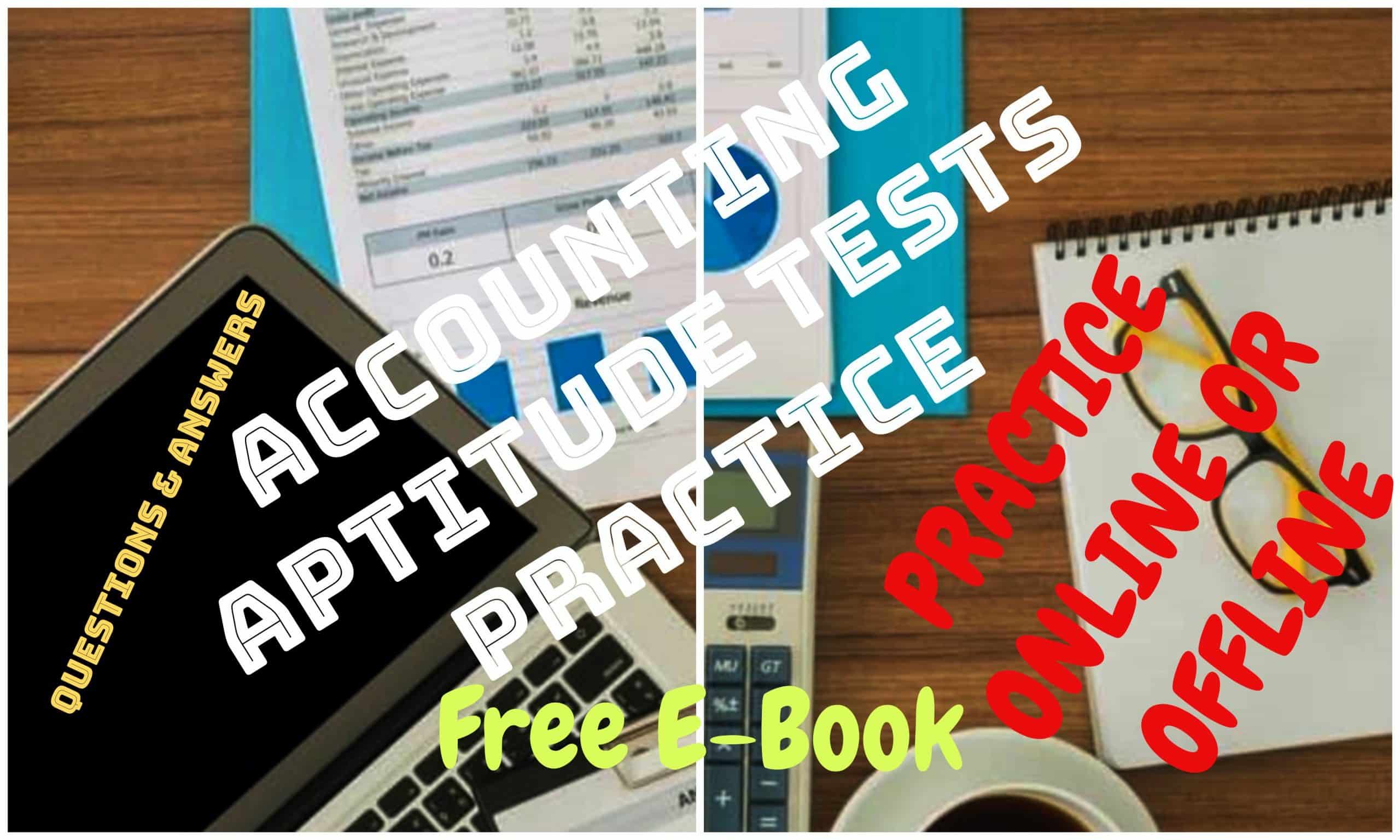An aptitude test refers to an exam used to determine an individual’s skills or readiness to succeed in a given activity. Aptitude tests are generally used for college program entry and job placement, and to help people get an idea of where their aptitudes and interests can take them regarding careers.
An aptitude test evaluates only a particular skill or propensity, not intelligence or knowledge.
In job placements, the Human Resources Departments use career assessment tests to learn about a potential candidate’s strengths and weaknesses. They assess a candidate’s skills, qualifications, and suitability for a particular role.
If you learn from defeat, you haven’t really lost
-Zig Ziglar-
If you are applying for a job, you should be prepared for different types of pre-employment aptitude tests.
6 Types of Pre-employment Aptitude Tests
1. Job knowledge tests
Job Knowledge tests measure your technical or theoretical expertise in a particular field. They are most useful for jobs that require specialized knowledge or high levels of expertise. Examples include:
-
-
Accounting aptitude test ( to measure basic accounting principles and financial management.)
-
Computer programming aptitude tests
-
Contract, agency, insurance, or tort law.
-
Business management, or entrepreneurship.
-
Accounting Aptitude practice tests
If you do not like something, change it. If you cannot change it, change your attitude.
-Maya Angelou-
-
-
Cognitive ability tests
-
Cognitive ability tests measure your general mental capacity and cognitive functions. They are used with other measures to assess whether you possess the skills necessary for the position you are applying to.
There are different types of tests used to measure your cognitive skills and abilities, including :
-
-
Verbal comprehension and reasoning tests: These tests are used to assess your ability to understand and interpret written information.
-
Numerical reasoning tests: These tests are used to measure your ability to read from tables and charts to solve numerical problems, including numerical patterns and basic math.
-
Learning agility tests: These tests are used to measure how you respond to new situations, solve problems, and learn from your past experiences. They test your mental; flexibility and versatility.
-
Logical reasoning tests: These tests are used to test your ability to reason and apply logic in real-world situations. They gauge your problem-solving skills, prioritization abilities, and risk assessment skills.
-
If I meet other people and criticize their weaknesses, I rob myself of higher cognitive power. But if I try to enter deeply and lovingly into another person’s good qualities, I gather in that force.
-Rudolf Steiner-
-
-
Integrity tests
-
Integrity tests are used to evaluate whether you are trustworthy, honest, and dependable, as well as your tendency towards unethical behaviors that might harm the organization. The ethics tests help employers spot early signs that you might engage in practices such as :
-
-
Stealing from customers or the organization.
-
Mistreating other employees.
-
Lying for your gain or to cover your mistakes.
-
Absenteeism and cheating on work assignments
-
Failing to report unethical behavior
-
Failure to take responsibility for your actions.
-
There are different types of integrity tests, including:
-
(i). Overt tests: These tests are used to assess whether you will engage in dishonest actions.
(ii). Covert tests: These tests are used to determine if your character is predisposed towards dishonest behavior.
Woe to him who builds his house by unrighteousness, and his chambers by injustice, who uses his neighbor’s service without wages, and gives him nothing for his work.
-Jeremiah 22:13-
-
-
Emotional Intelligence(EI) tests
-
Emotional Intelligence(EI) tests are used to evaluate your ability to monitor your own and others’ emotions and use the information to guide your thinking and actions. It involves a set of abilities that may be categorized into several domains:
-
-
Self-awareness.
-
Motivating oneself.
-
Managing emotions.
-
Empathy.
-
Handling relationships.
-
Emotional intelligence is a very important skill set, not just to be happier but also to succeed professionally.
-Daniel Lubetzky-
-
-
Personality Tests
-
Personality tests are used to evaluate your corporate cultural fit and whether your characteristic traits exhibited across various situations can translate into job success. They are designed to elicit responses about your behavior, emotional responses, interactions, preferences, and motivations to evaluate your personality characteristics and patterns.
There are two basic types of personality tests:
-
-
Self-report inventories.
-
Projective tests.
-
To live well is to work well, to show a good activity
-Thomas Aquinas-
-
-
Skills assessment tests
-
Skills assessment tests are used by employers to gauge whether you have the abilities and skills ( i.e. both soft and hard) necessary to perform various and essential aspects of a job. They are useful in the elimination process before conducting a job interview. There are several types of skills assessment tests, including:
-
-
Hard skills assessment: This test is used to measure your skills in a specific area, such as math, computer literacy, or software development.
-
Personality tests: This test is used to evaluate specific personality aspects, such as leadership and teamwork.
-
The interview: Interviews are used to asses both soft and hard skills
-
Cognitive ability tests: This test measures how you will perform in everyday situations and more unexpected scenarios.
-
Work sample test: Referred to as “realistic job previews”, this test resembles certain tasks that you are expected to perform in the position you are applying for(e.g. programming or coding). The test indicates your ability to perform the actual job efficiently.
-
Combination approach: This test combines several assessment tests rather than utilizing just one to provide more comprehensive results that eliminate the weaknesses of using just one assessment test.
-
"Work is good, as long as you do not forget to live"
-African Proverb-
Conclusion
Many employers use aptitude tests to evaluate a candidate’s suitability for a job or training program. You should therefore be prepared for your aptitude test because it helps employers to :
-
-
Screen out unqualified candidates
-
Measure job-related skills and predict job performance.
-
Identify candidates’ strengths and weaknesses.
-
Reduce turnover rates
-
A standardized evaluation process to evaluate a candidate’s skills and abilities and reduce the risk of bias or discrimination-based factors such as gender, race, ethnicity, or age.
-
Improve diversity and inclusion.
-
Aptitude tests, therefore, provide employers with a fair and objective evaluation process.
Follow this link to access accounting aptitude practice questions and answers and a Free Aptitude E-BOOK
The best preparation for tomorrow is to make sure today’s work is superbly done. -African Proverb-
Aptitude tests, Aptitude tests, Aptitude tests
Aptitude tests
Aptitude tests

